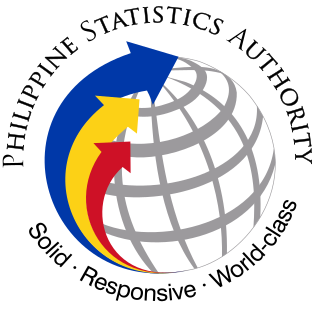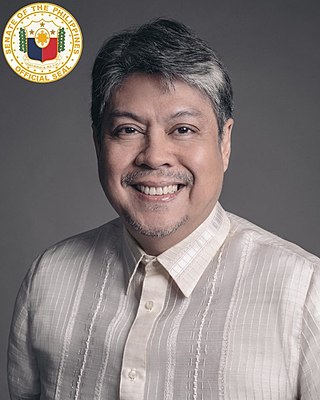History
The Philippine Coconut Authority was created pursuant to Presidential Decree 232 on June 30, 1973. [2] It absorbed and assumed the powers and functions of the then Coconut Coordinating Council (CCC), the Philippine Coconut Administration (PHILCOA) and the Philippine Coconut Research Institute (PHILCORIN).
Today, it is the sole government agency that is tasked to develop the industry to its full potential in line with the new vision of a united, globally competitive and efficient coconut industry.
In 1940, the National Coconut Corporation (NACOCO) was created to promote the growth and development of the industry. It was later renamed in 1954, as the Philippine Coconut Administration (PHILCOA) with the same function and responsibilities.
Ten years after, PHILCOA expanded its scope of operations and renamed as Philippine Coconut Research Institute (PHILŒCORIN) an agency created to monitor, evaluate and conduct researches on the coconut.
It was in 1971, at the height of the Period of Expansion when the Coconut Coordinating Council (CCC) was created in lieu of PHILCORIN and was tasked to supervise, coordinate and evaluate the implementation of the coconut self-sufficiency program of the government.
But these agencies lacked singleness in its purpose. The framework upon which they operated did not revolve around the total development of the coconut industry where coconut farmers stood at the focal point.
In view of this, the Government of the Philippines deemed it necessary to create an agency that would address that situation, thus, the Philippine Coconut Authority was created on June 30, 1973 by virtue of Presidential Degree No. 232. It absorbed and assumed the powers and functions, including the personnel and assets of the then defunct CCC, PHILCOA, and the PHILCORIN.
Philippine Coconut Authority became an independent public corporation on July 14, 1976 pursuant to Presidential Degree No. 961, reporting directly and supervised solely by the Office of the President. This Decree was the first codification of the laws dealing with the development of the coconut and other palm oil industry. [3]
The Code was later revised on June 11, 1978 by Presidential Decree No. 1468 ("Revised Coconut Industry Code") which eventually became the charter of PCA as a public corporation. [4]
On January 30, 1987, pursuant to Executive Order No. 116, the Philippine Coconut Authority was officially declared as an attached Agency of the Department of Agriculture (DA). [5] The declaration of transfer to DA from the Office of the President was enacted to provide overall coordination and monitoring of policies and programs of various sectors in agriculture. The attachment was confirmed and incorporated in the Administrative Code of 1987.
On May 5, 2014, President Benigno Aquino III reassigned the National Food Authority, the Philippine Coconut Authority, the National Irrigation Administration, and the Fertilizer and Pesticide Authority from the Department of Agriculture back to the Office of the President, with Francis Pangilinan given oversight responsibilities for the four agencies. NFA administrator Orlan Calayag and PCA administrator Euclides G. Forbes then both chose to step down from their respective positions on May 8 in order to allow Pangilinan to appoint his own preferred candidates to head the agencies. [6]
On July 4, 2016, PCA was among the 12 agencies, formerly from the Office of the President reassigned to the Office of the Cabinet Secretary, based on Executive Order No. 1 issued by President Rodrigo Duterte. [7] It was transferred back to the Department of Agriculture, along with the National Food Authority and the Fertilizer and Pesticide Authority, by Executive Order No. 62 issued in September 2018. [8]

The Philippine Statistics Authority is the central statistical authority of the Philippine government that collects, compiles, analyzes and publishes statistical information on economic, social, demographic, political affairs and general affairs of the people of the Philippines and enforces the civil registration functions in the country.

The Philippine Atmospheric, Geophysical and Astronomical Services Administration is the National Meteorological and Hydrological Services (NMHS) agency of the Philippines mandated to provide protection against natural calamities and to ensure the safety, well-being and economic security of all the people, and for the promotion of national progress by undertaking scientific and technological services in meteorology, hydrology, climatology, astronomy and other geophysical sciences. Created on December 8, 1972, by reorganizing the Weather Bureau, PAGASA now serves as one of the Scientific and Technological Services Institutes of the Department of Science and Technology.

The Department of Budget and Management is an executive body under the Office of the President of the Philippines. It is responsible for the sound and efficient use of government resources for national development and also as an instrument for the meeting of national socio-economic and political development goals.

The Department of Trade and Industry is the executive department of the Philippine government tasked as the main economic catalyst that enables innovative, competitive, job generating, inclusive business, and empowers consumers. It acts as a catalyst for intensified private sector activity in order to accelerate and sustain economic growth through comprehensive industrial growth strategy, progressive and socially responsible trade liberalization and deregulation programs and policymaking designed for the expansion and diversification of Philippine trade – both domestic and foreign.

The Department of Agriculture is the executive department of the Philippine government responsible for the promotion of agricultural and fisheries development and growth. It has its headquarters at Elliptical Road corner Visayas Avenue, Diliman, Quezon City.

The National Economic and Development Authority is an independent cabinet-level agency of the Philippine government responsible for economic development and planning. It is headed by the president of the Philippines as chairman of the NEDA board, with the Secretary of Socioeconomic Planning as vice-chairman. A number of Cabinet members, the Governor of the Bangko Sentral ng Pilipinas, the Chairperson of the Metropolitan Manila Development Authority, the Chief Minister of Bangsamoro, the Secretary of Information and Communications Technology, the Chairman of the Subic–Clark Area Development Corporation, and the National President of the Union of Local Authorities of the Philippines are members of the NEDA Board.

Francis Pancratius "Kiko" Nepomuceno Pangilinan is a Filipino lawyer, politician, and farm owner who served as a Senator from 2001 to 2013 and from 2016 to 2022. He was the Senate Majority Leader from 2004 to 2008.

The Philippines' National Food Authority, is an agency of the Philippine government under the Department of Agriculture responsible for ensuring the food security of the Philippines and the stability of supply and price of rice, the Philippines' staple grain.

The Philippines' Fertilizer and Pesticide Authority, is a technical regulatory agency under the Department of Agriculture. The agency is responsible for assuring adequate supply of fertilizer and pesticide at reasonable prices; rationalizing the manufacture and marketing of fertilizer; protecting the public from the risks of the inherent use of pesticides; and educating the agricultural sector in the use of these inputs.

Science and technology in the Philippines describes scientific and technological progress made by the Philippines and analyses related policy issues. The main agency responsible for managing science and technology (S&T) is the Department of Science and Technology (DOST). There are also sectoral councils for Forestry, Agriculture and Aquaculture, the Metal Industry, Nuclear Research, Food and Nutrition, Health, Meteorology, Volcanology and Seismology.
The Philippine Guarantee Corporation(PHILGUARANTEE) is a Government-owned and controlled corporation attached to the Department of Finance. Formerly known as the Philippine Export-Import Credit Agency or PhilEXIM, is the principal agency for State Guarantee Finance of the Philippines. The primary objective is to perform development financing roles through the provision of credit guarantees in support of trade and investments, exports, infrastructure, energy, tourism, agricultural business, modernization, housing, MSMEs (Micro, Small and Medium Enterprises) and other priority sectors of the economy, with the end in view of facilitating and promoting socio-economic and regional development.

Arthur "Art" Cua Yap is a Filipino politician who is the former governor of Bohol from 2019 to 2022. He was the secretary of the Department of Agriculture under the Arroyo administration from 2004 to 2005 and from 2006 to 2007. He became a member of the House of Representatives of the Philippines, representing the 3rd District of Bohol from 2010 to 2019.
The Coco Levy Fund Scam was a controversy in the 1970s and 1980s in the Philippines involving former President Ferdinand Marcos and his cronies. It is alleged that Marcos, Danding Cojuangco, Juan Ponce Enrile, and others conspired to tax coconut farmers, promising them the development of the coconut industry and a share of the investments, but on the contrary used the collection fund for personal profit, particularly in the purchase of United Coconut Planters Bank (UCPB) and a majority stake in San Miguel Corporation (SMC), to name a few.

The Office of the President of the Philippines, is an administrative, advisory, and consultative government agency that aids the president of the Philippines in performing their duty as head of state and chief of the executive branch of government.
Orlan Agbin Calayag is a Filipino politician, who is currently serving as Mayor of Dolores, Quezon. Formerly the administrator of the Philippines' National Food Authority (NFA), he was later appointed the Assistant Secretary for Project Planning & Development at the Department of Agriculture.
The Presidential Assistant for Food Security and Agricultural Modernization (PAFSAM) was a Cabinet-level position under the Office of the President of the Philippines. It was created on May 5, 2014, by President Benigno Aquino III.

The Cabinet Secretariat, formerly the Office of the Cabinet Secretary, was a member agency of the Cabinet of the Philippines which provided support to the President, facilitated the exchange of information, as well as discussed and resolved issues among Cabinet members. The Cabinet Secretary also acted as a coordinator and integrator of the initiatives of the President. The Cabinet Secretariat was created through Executive Order No. 237, s. 1987.

The National Irrigation Administration (NIA) (Filipino: Pambansang Pangasiwaan ng Patubig) is a Philippine government-owned and controlled corporation primarily responsible for irrigation development and management in the country.

Wencelito Tan Andanar was a Filipino lawyer and politician who served as officer-in-charge (OIC) governor of Surigao del Norte from 1986 to 1988. He also served as chairman of the Philippine Coconut Authority (PCA) from 1982 to 1992, presidential assistant during the administration of Cory Aquino and an undersecretary of the Department of the Interior and Local Government from 2001 to 2007. His last government position was as special envoy of President Rodrigo Duterte to Malaysia from 2018 until his death in 2021.

















